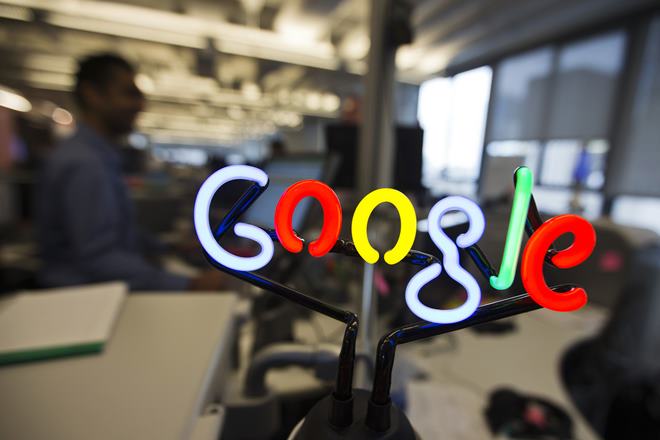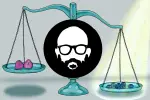You’re sitting in your Literature 301 course, having trouble following along, when your professor asks the class, “What aspect of human nature does the protagonist portray?” You want to catch up, so, instinctively, you take out your phone to search for the answer online. Which search engine did you use? Google, right?
There’s no shame in admitting it; you’re not the only one. Studies have shown that many college students turn to Google as if the site were already imbedded into their biological system. Mind Shift’s article on how millennials learn with technology explains that those who grew up with Google, and search engines in general, have been falsely comforted by the idea that the answer to any question can be provided by typing a few words into a search bar and hitting enter.

Trust Online, a research study conducted by Eszter Hargittai and her colleagues at Northwestern University, surveyed a total of 1,060 college students on their internet search habits (context, questions, time usage), before conducting the in-person interviews on those who volunteered to participate in the investigation. Unsurprisingly, the pre-study survey concluded that the students were using Google for “research” and intimate questions, such as what to do if your boyfriend’s condom broke during sex, among other things.
According to this article, which delves into the digital marketing megatrends of 2017, Google holds a 77.4 percent stake in the search engine market share, demonstrating a sharp increase from last year’s share of 67 percent.
Sneaky Biases
Yet, Google still does not equate to research; professors have long tried to explain that the internet is an unreliable source. Online research becomes even more inaccurate when the proper steps to verify the credibility and possible bias of the search results are not taken. It has been shown that these fact-checking steps actually have to be implemented even more when using Google.
An article published last week questioned whether or not Google has a liberal bias, a query that reflects Harvard University’s findings during a 2010 proposal regarding “biased search results.” The article states that the results of a Google search on recently deceased former Chairman and CEO of Fox News, Roger Ailes, consist of publications slandering Ailes’ reputation as a person, further calling into question the objectivity of Google.
This evidence confirms that Google shouldn’t be taken as a completely reliable source of information, or, at least, not an immediate one. It’s okay to look for answers on Google, but remember that there are billions of search results provided to you in a matter of seconds, and, ultimately, not every website is going to be an article citing concrete facts with an unbiased perspective. That’s why fact-checking and a background search on the author/sponsor of the publication is necessary.
Checks and Balances
If you are on Google and want to use a website in your research (and if you want to know if it’s credible), you should do the following:
Research the author to see the type of work he or she has written and whether or not they appear to be a trustworthy source. Ask questions like: What other companies have they worked for? Is their writing tone consistent? What methods are being used to state their claims? Is it through research and statistics or a restatement of alternative facts found online?
Look at the “About Us” section of a website that tells you everything from the start-up date of the site, to the well-known publications that their authors may have written. What kind of writers are on their team (volunteers, long-term teammates, interns, etc.)?
Every Penny Counts
A second resource that most college students can benefit from utilizing, but may not be aware of, are the many research databases provided to them as part of their university’s tuition. You’re paying for your education, so take full advantage of the services provided. Here are some databases that any college student can use:
1. Ebscohost
I prefer a good, informative book over articles any day, yet, sometimes, it’s not convenient to check them out from the library. Or, even worse, the book isn’t available at your school library, and now you have to run around trying to find a library that does have the book.
So, online databases that provide electronic copies are a must. See if your school is partnered with one such as Ebscohost, the database that provides a library at your fingertips.
2. Lexis-Nexis
Trends and news are ever-changing and sometimes you need something more up-to-date than a recently published book. By just typing in some key words into the search box, Lexis-Nexis provides a superb, informal database that includes current and past news articles on the topic of your choice. However, you may still want to look up the piece on a search engine, as some of the article’s content is often omitted.
This tool serves as the largest general-interest database with timely periodicals, current news headlines and studies.
So, I know what you’re thinking. If this article is about how Google is not as reliable a search engine as people make it out to be, what’s so different about Google Scholar? Well, with Google Scholar, you get established and reputable thesis papers and journals–the PDFs are offered as is, without any alterations made by journalists.
Millennials have grown up with the internet, making it a part of their everyday lives. Sure, it would be nice if fewer youth were to Google every question they had or instantly turn to WebMD to over-diagnose their flu symptoms, but internet usage doesn’t appear to be decreasing, nor will it anytime soon, so smart usage is key, especially when conducting research.


















[…] that that presupposes conservative thinking is backwards and unintelligent. From Google’s skewed search results, to social media’s liberal bias, it is difficult to find a fair […]